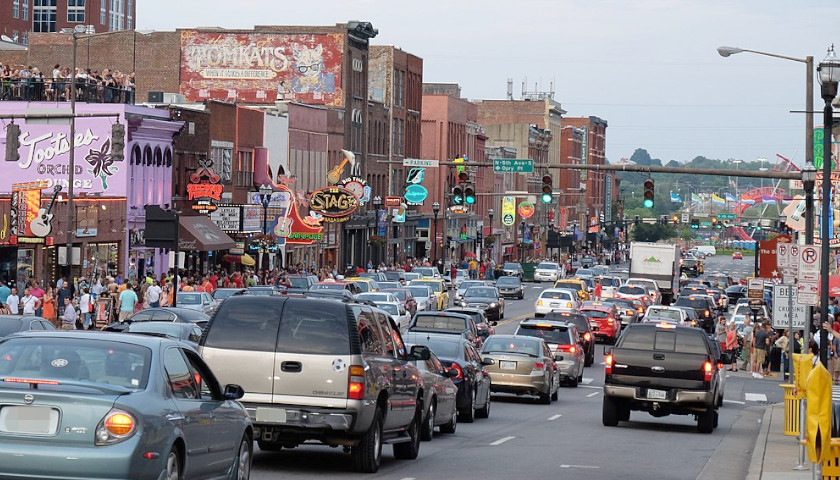The City of Nashville, in conjunction with a group of business owners, is seeking feedback on a plan to reduce traffic in the metro area.
Connect Downtown is a joint project by the Nashville Department of Transportation (NDOT), WeGo Public Transit, the Nashville Downtown Partnership, and the Tennessee Department of Transportation (TDOT), whose goal is “to improve mobility and address traffic congestion in the downtown core.”
The Nashville Downtown Partnership is a collective of more than 100 dues-paying businesses working with the government to reduce traffic in the metro area.
“Our work on Connect Downtown is wrapping up, and we are beginning our final phase of community outreach. We’ve developed a Draft Action Plan, and we need your feedback before we finalize our recommendations,” the city’s website says. “The draft recommendations include priority loading areas, transit priority corridors, mobility lanes, and traffic operations and congestion management strategies, along with many more investments that will make it easier, faster, and safer to move around Downtown Nashville.”
Last year, Connect Downtown collected feedback from 2,128 respondents to a survey, which it then used for its Draft Action Plan.
Respondents largely participated by marking on a map of the city the most difficult roads and intersections to navigate.
Part of the Draft Action Plan includes building a Traffic Management Center (TMC).
“Nashville is building its first TMC, which will manage traffic flows across the city’s street network and support our first responders,” the plan says. “Providing the ability to address congestion in real time, the TMC will be especially helpful during special events, emergencies, and peak travel periods.”
It also includes new adaptive traffic signals to “give traffic engineers the ability to provide additional green time at an intersection, to increase the walk time for a crowd leaving an event, or to give a bus a head start in a busy corridor,” along with more digital signage and “Don’t Block the Box” road treatment.
The 70-page plan also lists specific plans for certain streets.
For example, if the plan is implemented, 4th Avenue and many others would be completely transformed.
“To complement 3rd Ave, NDOT will convert 4th Ave to oneway southbound between Broadway and Peabody St, making all of 4th Ave one-way through the Downtown core,” the draft plan says. “This will provide space for dedicated transit lanes and queue jumps, as well as extra space for priority loading zones. This conversion will help move people in buses and personal vehicles out of Downtown, especially after events.”
7th Avenue would also get a major makeover.
“Although traffic volumes on 7th Ave are relatively low, queueing and loading activity is quite high during the afternoon dismissal at Hume Fogg,” the plan says. “To provide more space for curb uses and to support a two-way protected mobility lane, 7th Ave will be converted to one-way southbound between Dr. Martin Luther King, Jr. Blvd and Demonbreun St.”
Nashville was recently ranked by Forbes as having the toughest commute in America.
– – –
Pete D’Abrosca is a reporter at The Tennessee Star and The Star News Network. Follow Pete on X / Twitter.
Photo “Nashville Traffic” by Cheryl A. Austin. CC BY-SA 4.0.








